The next generation of sensing platforms
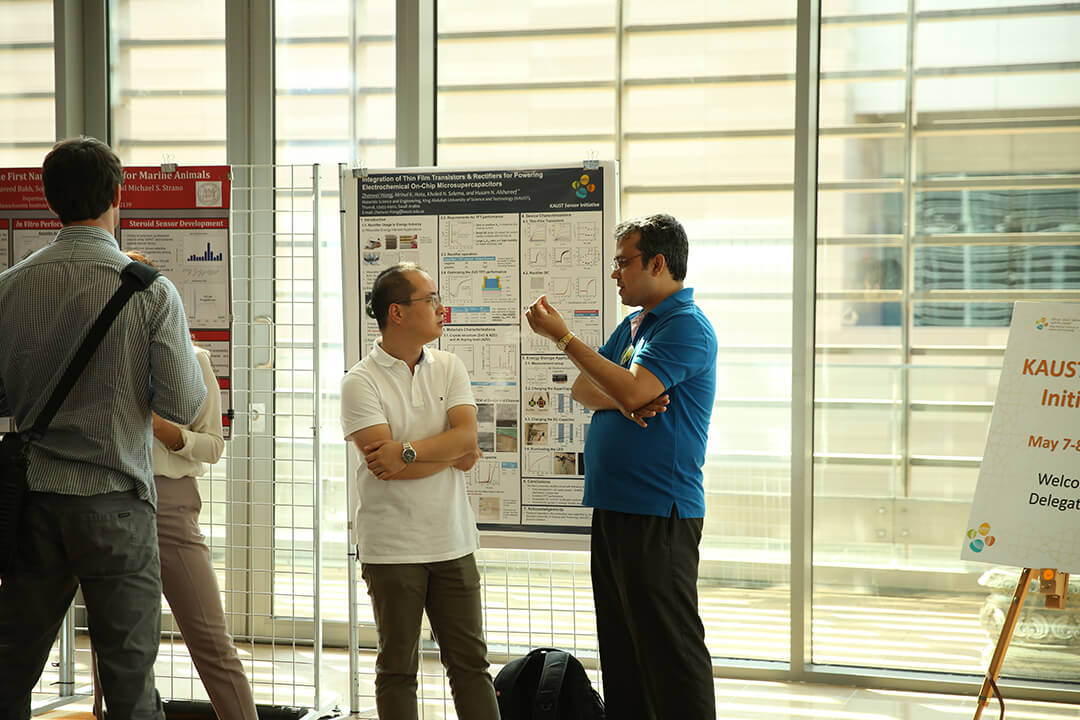
KAUST Ph.D. student Zhenwei Wang (left) listens to a fellow researcher discuss his work during the poster session as part of the recent on campus KAUST Sensor Initiative.
The University welcomed 70 delegates to the third annual KAUST Sensor Initiative, held on campus from May 7 to 8. The interdisciplinary meeting aimed to transform sensor technologies and explore novel applications, create a global group of sensor pioneers and mentor a new generation of sensor experts.
To achieve these goals, teams of researchers came together from across the University's three divisions with support from experts from universities and institutes around the world, including from MIT, UCLA, Brown University, Georgia Tech, TU Delft, Swansea University, the University of Regensburg and the Australian Institute of Marine Science (AIMS).
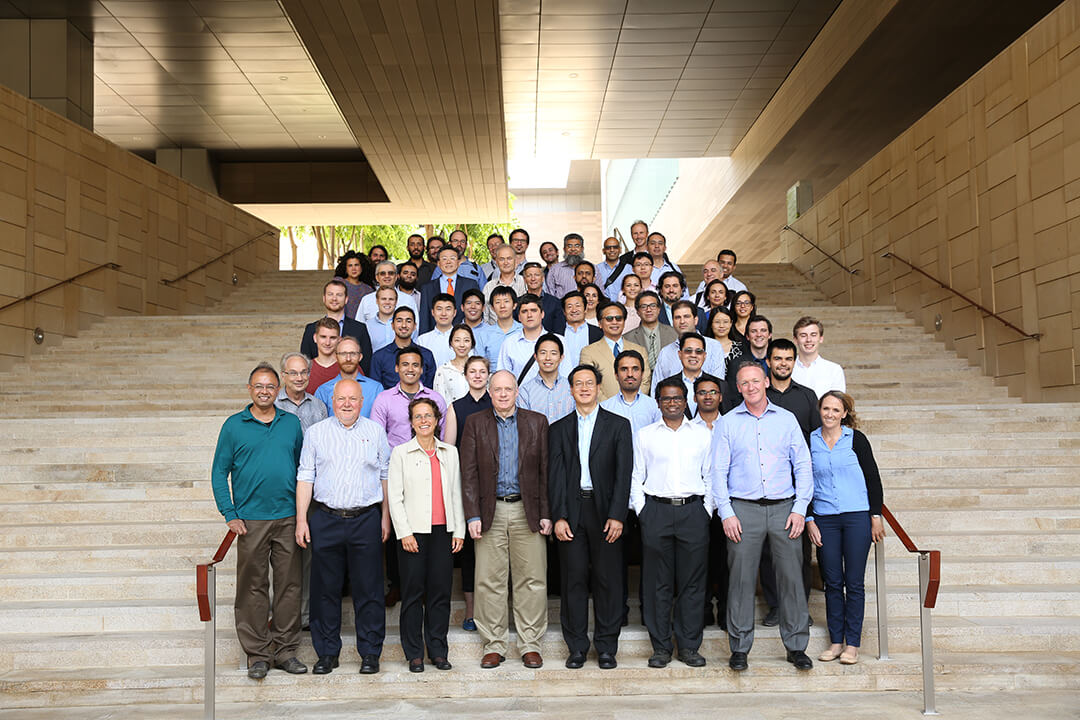
Over 70 delegates participated in the KAUST Sensor Initiative, held on campus from May 7 to 8.
Developing devices, building collaborations
Dr. Manus Ward from the KAUST Office of Sponsored Research (OSR) opened the symposium, which was chaired by Khaled Salama, KAUST associate professor of electrical engineering. In his opening presentation "A research center without walls," Salama commented on the unique nature of the initiative, in which 18 KAUST faculty members and 13 international experts worked towards a common vision.
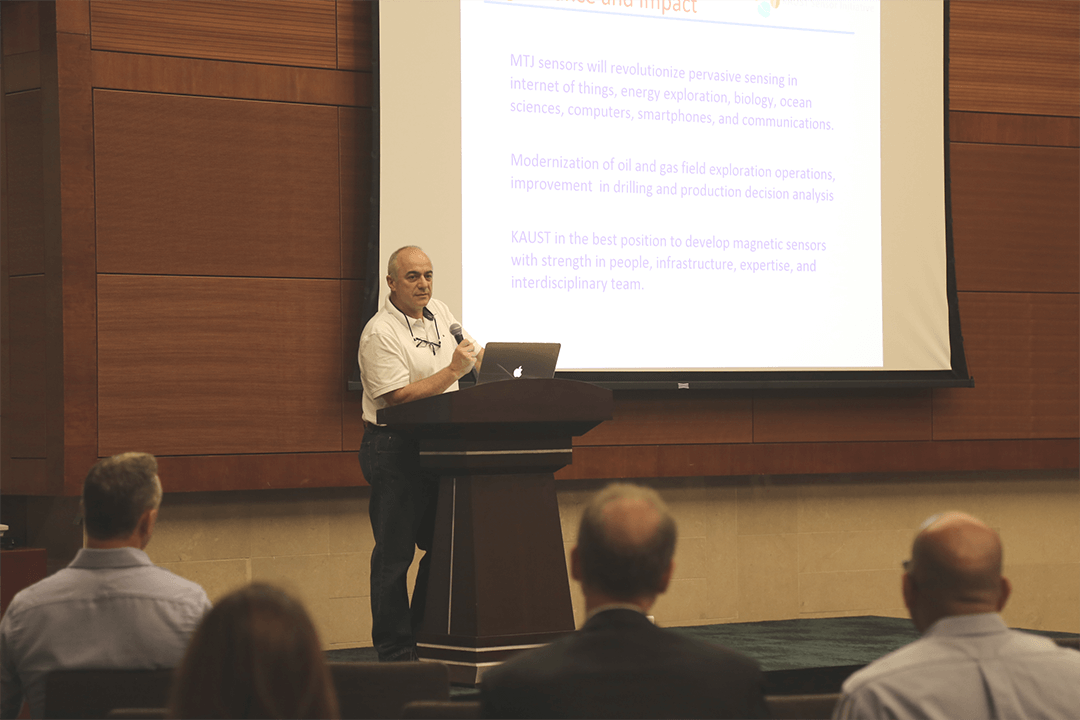
Carlos Santamarina, associate director of the University's Ali I. Al-Naimi Petroleum Engineering Research Center, presents his research work during the recent on campus KAUST Sensor Initiative.
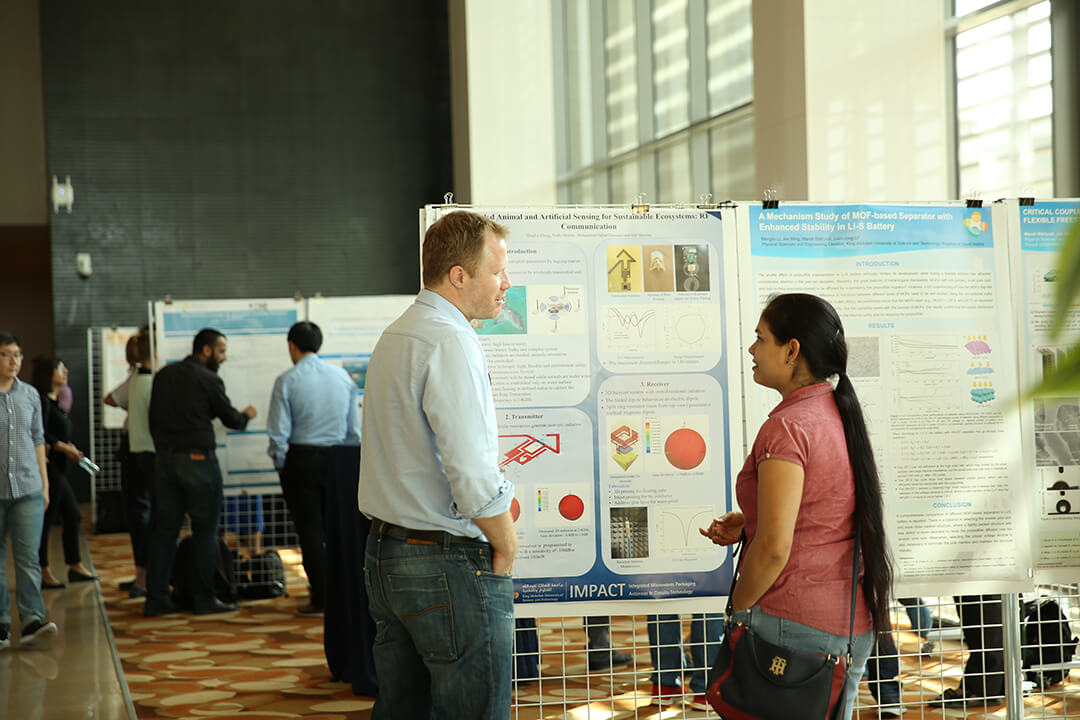
KAUST students and postdoctoral fellows participate in the poster session as part of the recent Sensor Initiative event.
Notable KAUST talks included "Development of FET-based CNT Chemical Sensors," featuring collaborative work between KAUST Professors Xixiang Zhang and Khaled Salama and MIT's Professor Timothy Swager; and "Coupled Animal and Artificial Sensing for Sustainable Ecosystems," a project chaired by KAUST Professor Carlos Duarte that included KAUST Professors Jurgen Kosel, Muhammad Mustafa Hussain, Atif Shamim, Burton Jones and Xiangliang Zhang and external collaborators Professors Victor Equiluz (IFISC), Michael Strano (MIT), Mani Srivastava (UCLA), Rory Wilson (Swansea University) and Mark Meekan (AIMS).
New opportunities
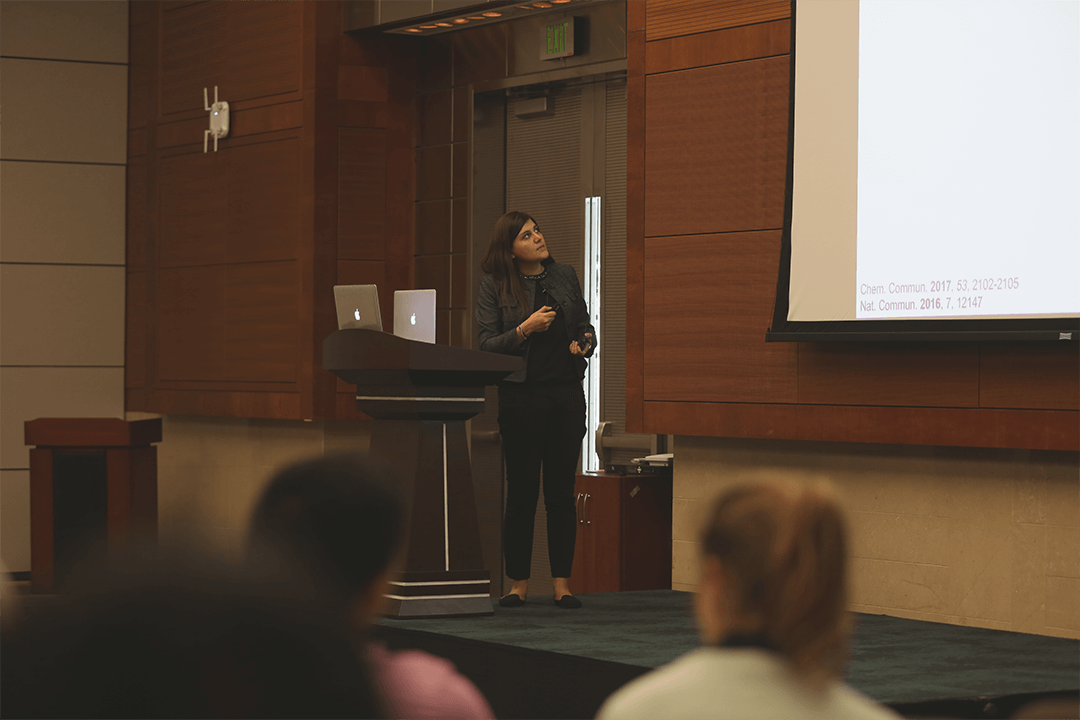
KAUST Associate Professor of Chemical Science Niveen Khashab gives a talk entitled “Design, synthesis and applications of ‘smart’ programmable materials” during the recent on campus KAUST Sensor Initiative.
KAUST Associate Professor Niveen Khashab noted her talk "Design, synthesis and applications of 'smart' programmable materials" gave her an "excellent opportunity to interact not just with chemists but also with material scientists and engineers from all over the world who converged at KAUST to lead the next generation of extremely sensitive and industrially relevant sensing platforms."
Workshop speaker Atif Shamim, KAUST associate professor of electrical engineering, stated that "the event was like a crash course in advanced multidisciplinary sensor systems. It was amazing to participate in the Sensor Initiative with so many specialists from so many different fields and renowned institutions, and I learned much during the two days from the presentations and my interactions with other participants."
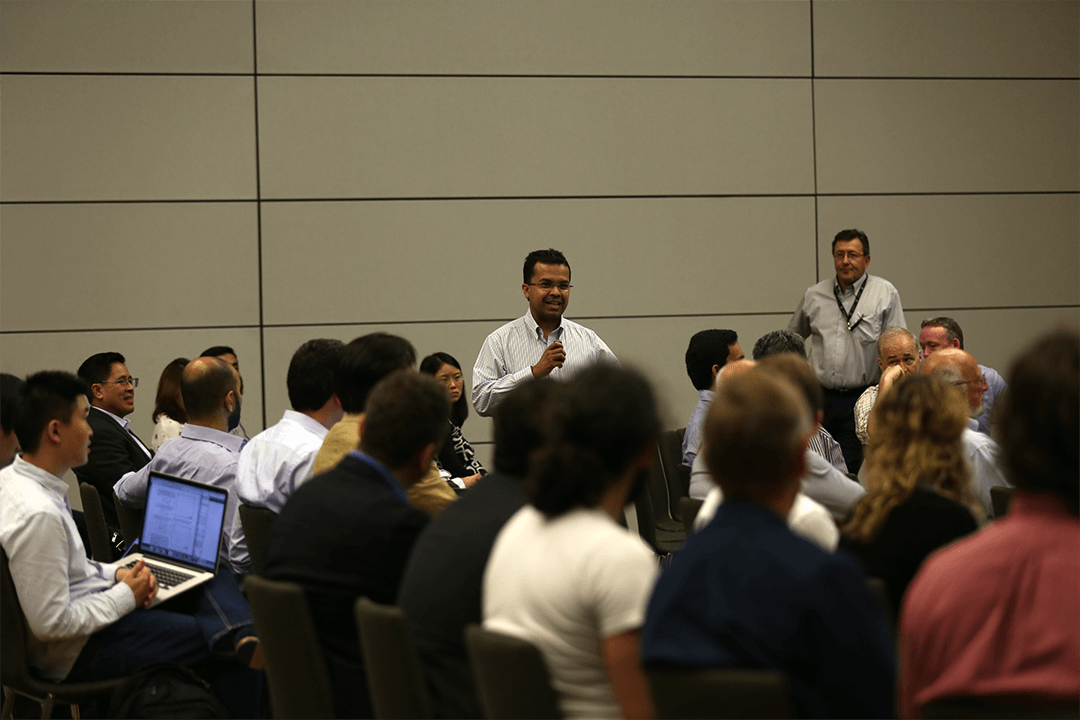
Muhammad Mustafa Hussain, KAUST associate professor of electrical engineering, gives a talk on his research work during the recent on campus KAUST Sensor Initiative.
"At KAUST, we try to leverage the properties of organic electronic materials in the growing field of bioelectronics," said conference speaker Sahika Inal, KAUST assistant professor of bioscience. "My event talk 'Organic electronic materials and devices for clinical health monitoring and therapeutic applications' was well-received."
"The Sensor Initiative is a program where I once more witnessed and appreciated the fact that we as KAUST faculty are encouraged to come together to make impactful research," she continued. "This is the spirit of my own research group—an interdisciplinary team of people who complement each other."
The next Sensor Initiative will take place from May 6 to 7, 2018.
Related stories:
-
Innovating for the Kingdom's future
-
The best and the brightest
-
Supporting and celebrating innovation
- By Caitlin Clark, KAUST News

